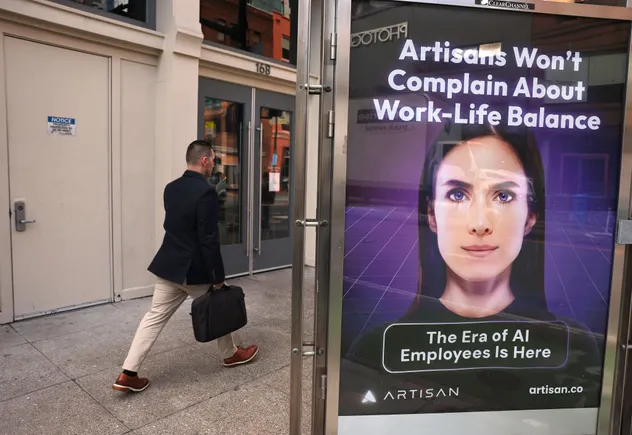Few companies have aligned their workforce strategies with their artificial intelligence investments, leaving a major gap in preparedness and talent needs, according to a May 29 report from Kyndryl, an enterprise technology services firm.
About 7 in 10 leaders responding to a survey said their workforce isn’t ready to successfully leverage AI tools, and half said their organizations lack the skilled talent to manage AI.
“Only a small group of businesses have been able to harness AI successfully for business growth,” Michael Bradshaw, global practice leader for applications, data and AI at Kyndryl, said in a statement. “This report shows that while data architecture and technology infrastructure are key pieces of the puzzle, organizations that do not prioritize their workforces will miss out.”
In the survey of more than 1,000 senior business and technology executives, 95% said they’ve invested in AI, but only 14% have aligned their workforce, technology and growth goals. In addition, 45% of CEOs said most of their employees are resistant or even openly hostile to AI.
Workforce readiness varied by industry, with the highest levels of preparedness reported in the banking, financial services and insurance sectors and the lowest in healthcare.
Kyndryl noted three key barriers to AI adoption: organizational change management, a lack of employee trust in AI and workforce skills gaps. The “AI pacesetters” — or the 14% of companies with aligned workforces — appear to be addressing these barriers, the report found.
For instance, pacesetters were three times more likely than other companies to report a fully implemented change management strategy for AI in the workplace. These companies were also 29% less likely to cite fears about AI affecting employee engagement.
Notably, AI pacesetters were 67% more likely to agree that their organizations had the tools and processes to accurately inventory the skills that their employees have, and about 40% reported no skills challenges.
So far, only 10% of companies qualify as “future-ready” in terms of having structured plans to support workers, build skills and lead through AI-related disruption, according to a survey by the Adecco Group. Most companies struggling with the transformation expected workers to proactively adapt to AI, while future-ready companies prioritized skills-based workforce planning, the report found.
In general, employers don’t understand workers’ AI-related training needs, which can hinder them from creating robust upskilling plans, according to an Amazon Web Services report. Most IT decision-makers said they lacked knowledge of how to implement training programs, and 41% said they had limited training budgets.
Despite limited training, nearly 7 in 10 companies now use AI tools for work, according to an OwlLabs survey of knowledge workers. About a quarter of workers said their employers strongly support AI use and supply tools, training and clear workplace guidelines.






Leave a Reply